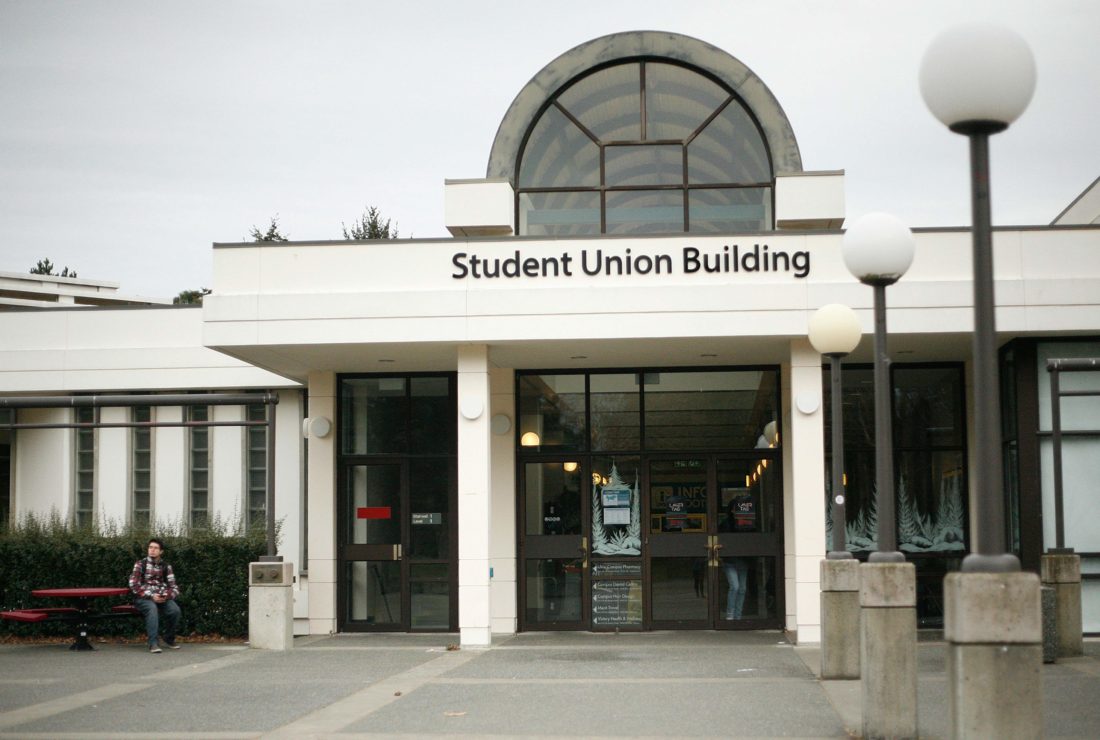The UVSS and the SSD to host town hall on Nov. 27

On Nov. 27, the UVSS and the Society for Students with a Disability are hosting an accessibility town hall in the Michele Pujol Ballroom from 3:30 to 6 p.m. The town hall is one of many being held throughout the province to consult with citizens on the pending legislation on provincial accessibility.
“I think this is really important that this is happening to really just streamline the legislation around accessibility in B.C. . . . education should be accessible so developing this, and developing some standards around [accessibility] are really going to help aid in that accessibility,” said Shay lynn Sampson, UVSS Director of Events.
The town hall’s format is casual, featuring small group discussions and free food. Anything shared will remain anonymous. An ASL interpreter will be available. The event has been funded by the Social Planning and Research Council of British Columbia (SPARC BC) — they gave the UVSS a $2 000 grant for the town hall and provided various resources. Natalie Blecha, the UVSS representative for the SSD, brought this to the board’s attention and helped the event become a reality.
The UVSS must send a report detailing students’ feedback to SPARC by the end of November. After all of the town halls have been held, SPARC will compile the information into a report to present to the Minister of Social Development and Poverty Reduction, Shane Simpson.
No timeline has been set for when the legislation will actually be tabled as a bill, and Sampson could not specify when the SPARC report would be prepared for the Minister, beyond noting that the UVSS will submit the report from the town hall by the end of the month.
The pending provincial legislation will complement existing federal legislation — Bill C-81 a.k.a. the Accessible Canada Act — while also aligning with the United Nations Convention on the Rights of Persons with Disabilities (UNCRPD) and the United Nations Declaration on the Rights of Indigenous Peoples (UNDRIP).
In a statement on the legislation’s guiding framework, Simpson said, “Our government is working to remove barriers for people with disabilities and creating a culture of inclusion. Developing accessibility legislation is an important step that will help B.C. reach this goal.”
Four provinces currently have accessibility legislation. Quebec was the first province to pass accessibility legislation in 2004, followed shortly after in 2005 by Ontario, and thereafter Manitoba (2013) and Nova Scotia (2017). Currently, individuals can challenge cases of discrimination through the Human Rights Code (B.C.) or the Charter of Rights and Freedoms, but no standalone legislation exists for addressing the more systemic issues around accessibility. Sampson noted that it is due time for legislation like this in B.C.
Although Sampson could not specify issues that accessibility legislation might address at UVic, she remains hopeful that this legislation will enable accessibility on campuses throughout the province.






